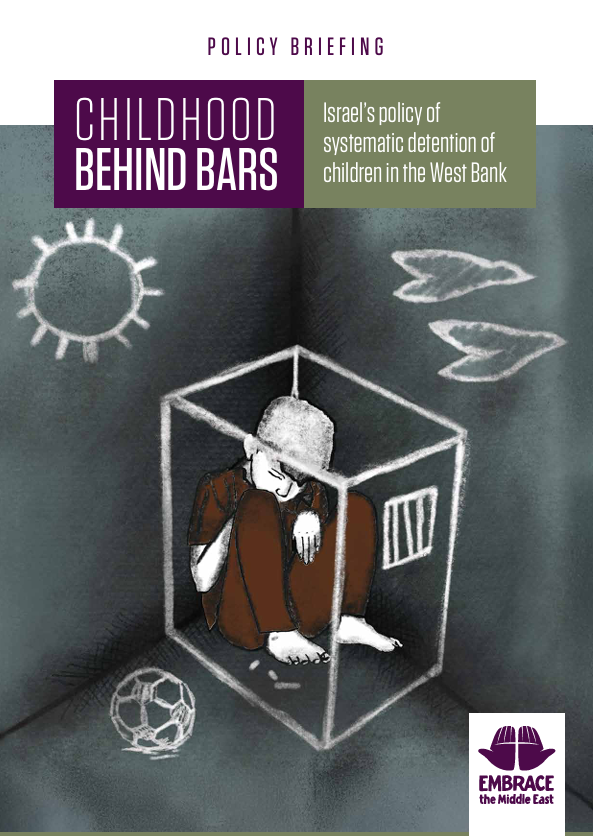Childhood Behind Bars: The football-mad teen arrested at his local playground
AMIR’S STORY
Artwork credit: Shatha Safi
The day that 14-year-old Amir was arrested started out like any other. He was spending time at the local playground with one of his close friends, next to the football pitch where they both loved to kick a ball around.
All of a sudden, a large number of Israeli soldiers surrounded the two boys. They were handcuffed abruptly, dragged by their arms and pushed into a waiting military vehicle. Amir recalls being slapped and beaten, with no idea where he was being taken or what was going to happen next. His thoughts flashed to his parents: how would they cope when they learned what was happening to him?
Before his arrest, Amir’s life had followed a predictable pattern. He’d gone to school during the day and afterwards he had studied and played with his friends. Since a young boy, he’d always had a particular passion for football.
Life in detention
But everything changed after he was arrested. He was detained for one week at an Israeli interrogation centre under the charge of throwing stones. During his time in detention, Amir had no access to a lawyer. He didn’t know where he was or what time of day it was, and he was given no opportunity to speak to his family.
There was no rest and no comfort: just repeated beatings and psychological pressure. The beatings left Amir in intense physical pain. But even worse was the psychological toll: he developed anxiety and his thoughts became obsessive, caught in a permanent loop of fear.
Anxiety, fear and communication breakdown
After the week of detention, Amir was sentenced to two weeks of house arrest. But despite being back in familiar surroundings, he remained anxious and fearful. His feelings were heightened during nearby military raids, which made his own home feel unsafe. He found it difficult to fully express his emotions, often feeling numb. His file is still open, which means he could face arrest again.
Communication became difficult with his family, especially his mother. Her increased anxiety about her son’s safety, while rooted in love, caused tension. She no longer allowed him to go to the playground where he’d always enjoyed spending time with friends. Even more painful for Amir was that the place where he was arrested was the same football field he’d once loved, turning it into a trigger for fear and bad memories instead of joy.
Moving towards healing and hope
And yet, through structured psychosocial support provided by Embrace’s partner, Amir gradually began to find relief. Through compassionate guidance and individual counselling sessions, he started learning to trust both himself and others again, slowly reclaiming a sense of purpose and emotional stability. The sessions gave him space to express himself, laugh and feel heard.
Slowly, Amir began to find joy in the small things. One day, in a safe space, surrounded by people who cared about him, he found the courage to kick a football again. This was symbolic of more than a game: it was a step towards healing, a way to reconnect with the boy he’d been before the trauma.
Although the fear is still there, and some nights are harder than others, Amir now has a sense of hope.
Share this story with your friends:
Join our campaign to stop military detention of Palestinian children
We are calling on the UK government to put pressure on Israel to end military child detention in the West Bank, and also address the root cause of it - the occupation.
Your MP has the power to pressure the government to bring about real change for Palestinian children. Find out more about our campaign and write to your MP today:


